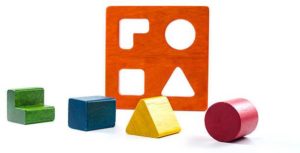 One of the primary drivers of success is finding your strengths and focusing on using them. Your strengths are those personal characteristics that allow you to perform at your personal best.
One of the primary drivers of success is finding your strengths and focusing on using them. Your strengths are those personal characteristics that allow you to perform at your personal best.
The more you can narrow down to what your core strength is the better your chance of success. That’s why the key to having an excellent career is to ask yourself one simple question: “What is my biggest strength?”
So many people are in jobs they don’t like because they haven’t found the answer to that question. And because everyone is good at a few things and does them here and there, many talented people float in the pool of mediocrity – lacking real success.
That should not be. Don’t deny yourself fulfillment and subsequent success by failing to play in areas of your strength. You must nail down your strengths so you can discover your passion. Critical to success is finding and being sure of that one big thing you want to do forever – your biggest strength.
Here are three tips that will help you identify your strengths and find ideas for using them:
1. Discover what makes you tick
To identify your strengths you have to start paying close attention to the things you do with ease and that you generally achieve a good result from. Pay attention to the things that come most naturally to you that you love to do.
That’s a good start. The process will show you, what you are truly good at. Next, you have to make sure of what your emotions are telling you.
How do you feel when you do these things? For instance, when you’re involved in an activity you are truly good at, your excitement is visible and you feel more engaged.
These are all positive emotions, which will give you a closer look into your passions. It’s important that you focus only on the strengths that connect with your strong emotions. Only in this way, will you be able to keep improving your strengths in the long run.
You could also brainstorm and note what comes to mind with the following questions:
• What do other people always tell you you’re good at – but you don’t notice?
• What activities give you energy? When do you feel most alive at work?
• When did you last lose track of time? What were you doing?
• What activities make you feel most motivated?
2. What do you suffer with?
Like the first point, you should identify your personal weaknesses too not because they will become your strengths, but because you don’t want them to hold you back. Also, knowing them, you might consider partnering with someone who is far better than you in those areas. In this way, you’ll be able to turn your deficits into your advantages.
Identifying your weakness should be easier because it gets quite obvious, when you don’t enjoy a process and when others are much better equipped than you in a certain area.
The following indicators will help you to pinpoint your weaknesses:
• You don’t like an activity or you don’t feel any positive emotions about it.
• You feel a lack of energy or you procrastinate when faced with this area.
• You get things done, but it takes you more time than others need.
• Others do it much better.
Use these indicators, during your work routine. When you notice a pattern, which points to one or more indicators, consider it as one of your weaknesses. The stronger the pattern, the stronger your weakness is.
With both your strengths and weaknesses identified, it’s now a question of emphasis; you’ll know what to focus on in your life. In other words, allocate your time wisely and invest more energy into your strengths.
3. Recall your achievements
What have been your proudest moments in life so far? What are your finest achievements? Usually we’re so modest and self-effacing that we try to casually belittle our best achievements. Please don’t do that in this case. Identify your achievements and really recall them in detail.
Think of all your major achievements and for each one try to remember that achievement in detail. What did you do? How did you influence those around you? What strengths would you say you used during this achievement?
Considering all the achievements, which one was most creative? Which one took most courage? Which one was most inspiring? Which achievement do you most look back on? Which achievement took most stamina? Which achievement was the most difficult?
In answering the questions above, you may have identified the particular achievement that got attention most. The strength you used there is a good indicator of what your biggest strength may be.
Taken together, it is critically important for you to know your strengths and put them into practice. If you are looking to advance your career, finding and leveraging your workplace strengths is perhaps the most important thing you can do. Otherwise, you will find yourself in an area that doesn’t leverage your strengths and your drive and performance will suffer along with your career advancement.
Generally, your strengths are ultimately the keys to your success. If you fail to find your strength and focus on using them, you’ll play on the ‘wrong’ side of the pitch and life will inadvertently assess you wrongly.
“If you spend your life trying to be good at everything, you will never be great at anything.” –Tom Rath